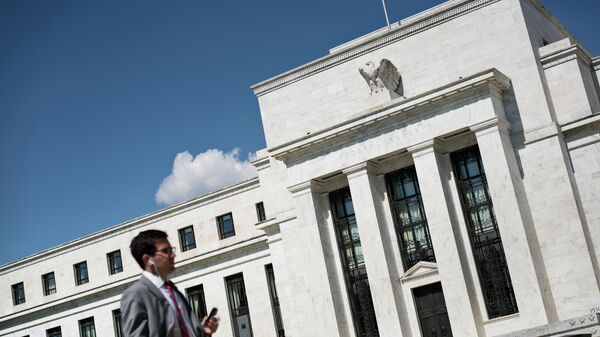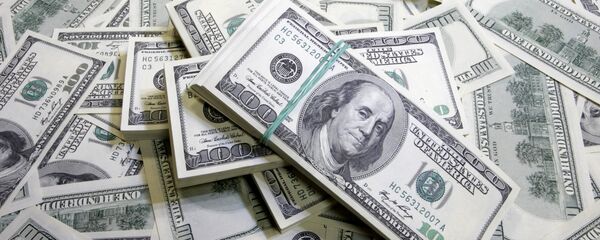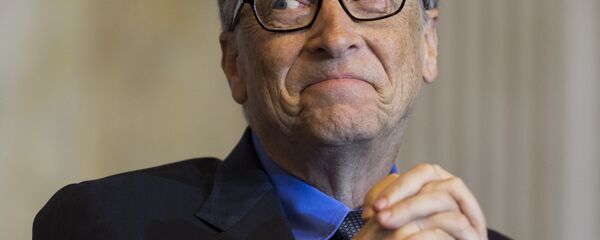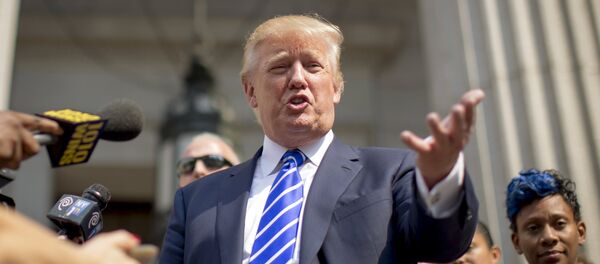Kristian Rouz — The US Federal Reserve raised its benchmark interest rates by a quarter point, from 0.75pc to 1.00pc, after Wednesday's two-day Federal Open Market Committee (FOMC) meeting, citing a stronger labour market and accelerating inflation as the main upside factors, allowing for policy tightening. However, the rate hike might affect US consumer sentiment and restrain 1Q17 GDP expansion as real wages and household disposable incomes remain stagnant.
Fed Chair Janet Yellen, who is well aware of the possible downside risks accompanying the decision to raise rates, explained that the central bank is in no hurry to hike rates further, and will stay on course, implementing three hikes this year.
"The simple message is the economy's doing well. We have confidence in the robustness of the economy and its resilience to shocks," Yellen said. Today's rise in borrowing costs "does not represent a reassessment of the economic outlook or of the appropriate course for monetary policy," the central bank head added.
The Federal Reserve Bank of Atlanta said they expect GDP growth to total 0.9pc in the first quarter, in line with the general economic slowdown of the last couple of years.
It might be hazardous to raise rates in such a slow-growth environment, but the Fed apparently has no choice but react to the unprecedented credit expansion of the past years. Meanwhile, as the financial sector outpaces the real economy once again due to Trump-inflicted optimism, a rate hike might have been an attempt to cool equity markets.
Nevertheless, both stocks and bonds rallied across the globe following the Fed decision, as markets had expected more bullish rhetoric from the US policymakers.
"It's uncertain just how much sentiment actually impacts spending decisions, and I wouldn't say at this point that I have seen hard evidence of any change in spending decisions," Yellen said. "Most of the business people that we've talked to also have a wait-and-see attitude."
Neel Kashkari, Minneapolis Fed President, was the only Fed board member to vote against the rate hike on Wednesday. His main reason is that persisting income inequality in the US might negatively affect the pace of economic growth, given that making credit less affordable typically curtails the purchasing power of low-income Americans.
Yellen, however, argued that since the US economy has not produced any surprises for the Federal Reserve Banks over the past several months, a rate hike is an appropriate move, normalising overall monetary conditions. She has a point: ultra-accommodative borrowing costs significantly limit the Banks' ability to reach to the unpredictable, so where there's room to hike, the Fed will hike.
"We have seen the economy progress over the last several months in exactly the way we anticipated," Yellen said. "We have some confidence in the path the economy is on."
Market participants had expected the Fed would also announce a quicker pace of rate hikes in the near-term, but that did not happen, the regulator is still very cautious in its assessments. Partly, that is due to the uncertainties associated with the Trump administration's fiscal plan, which might face an uphill battle in Congress.
The Fed expects the US economy to expand 2.1pc this year, while the longer-term interest rate is projected at 3.0pc. Unless Trump's economic policies provide new sources of growth to the US economy this year, the reality will likely fall in line with the Fed's projections, because the growth potential is very limited at this point.
Meanwhile, natural US interest rates, reflected by the benchmark Treasury yield, stood at 2.49pc after the rate decision, despite the bond market rally. This means that bond markets are optimistic regarding the Trump administration and are still expecting a quicker normalisation in the Fed rates.
After all, the Fed's policy response is almost entirely dependent on the macro data, and should the GDP growth falter at the one-percent level this quarter again, both the Fed and the Trump administration will struggle to catch on, with the excessive optimism in certain areas of the economy.






